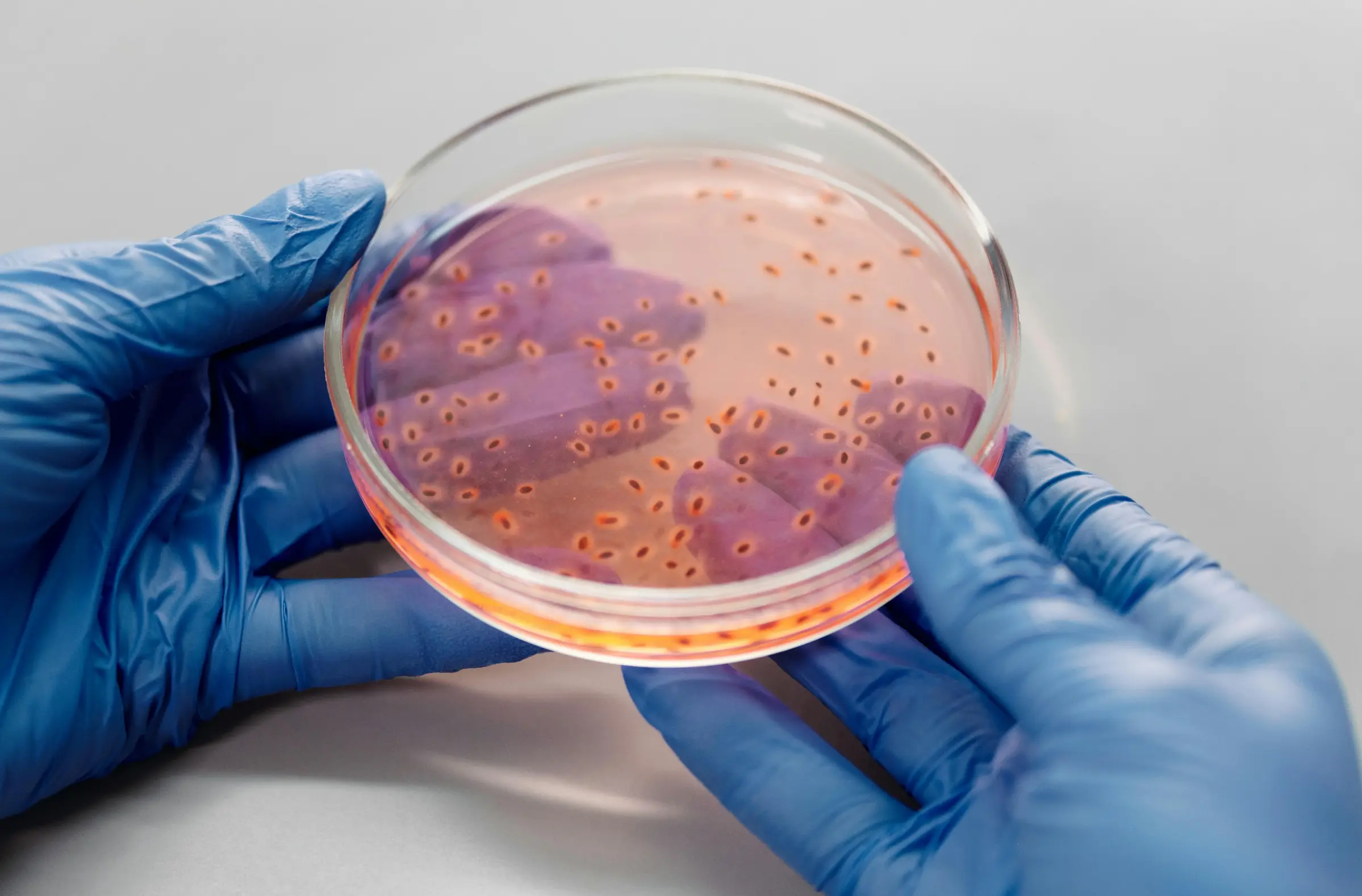Collagen and Exercise: The Science Behind Faster Recovery and Sustainable Performance
Did you know that collagen not only strengthens your skin, but can also support your workouts? Learn how this powerful protein can help you recover faster and perform better.

Introduction
Exercise is an amazing part of a healthy lifestyle -- it strengthens the body, sharpens the mind and improves the quality of life.
But it also comes with a price. Muscles, tendons and joints are subjected to repeated strain, micro-injuries and inflammation.
To be able to perform at the top — and at the same time avoid injury — is recovery and tissue repair Just as important as the training itself.
What is collagen and why is it relevant for you who exercise?
Collagen makes up to 30% of the total protein mass of the body and is the main component of:
- Tendons (type I collagen)
- Ligament (type I)
- Articular cartilage (type II)
- Fascia and connective tissue
- Skin, bones and muscles
Together, these structures provide the body stability, elasticity and mobility. During exercise -- especially during jumps, heavy lifting or repetitive strain -- small injuries occur in these tissues that require reconstruction.
The problem:
After the age of 25, the body's natural collagen production begins to decline. At the same time, the wear and tear increases in those who exercise hard. It causes tissues to recover more slowly, increasing the risk of inflammation, congestion and injury.
How can a collagen supplement help? What does the research say?
Many people still believe that collagen is just a supplement for skin and beauty. However, more recent research shows that hydrolyzed collagen peptides may also have direct benefits for exercising individuals. Several randomized, controlled studies have shown positive effects on:
✅ Joint comfort
✅ Late health
✅ Recovery
✅ Connective tissue strength
✅ Performance-related markers
Let's go over some key findings:

1. Reduced joint pain and better function associated with exercise
Clark et al. (2008) conducted a 24-week study in which women with physical activity took 10 g of collagen hydrolyzate daily. The result? A significant reduction of joint pain during activity compared to the placebo group.
Zdzieblik et al. (2015) showed similar results in young men: 5—10 g of collagen per day improved knee function and mobility.
💡 Relivo contains 6.4 grams of hydrolyzed marine collagen peptides — a dose that is within the scientifically validated range.
2. Strengthened tendon structure and reduced injury risk
One of the most high-profile studies in sports research is by Shaw et al. (2017). They showed that 15 g of collagen along with vitamin C, taken 60 minutes before exercise, increased collagen synthesis in tendons, measured by biomarkers in the blood.
🧠 Although the study used 15 g, similar efficacy has been noted at doses of 5—10 g, especially over a longer period of time — making Relivos 6.4 g very relevant in daily use.
3. Contributes to muscle repair and recovery
Collagen is rich in glycine, proline and hydroxyproline — three amino acids that are essential for building connective tissue and supporting muscle repair.
Although collagen does not replace complete protein, It complements other sources of protein with building blocks that are often lacking in whey or plant-based protein.

Why Relivo? A smarter way to use collagen
Marine collagen — better uptake, better effect
Relivo uses hydrolyzed collagen from wild-caught fish, which is:
- Highly absorbent — the body easily absorbs the short peptides
- Natural and clean — free from beef or pig residues
- Rich in type I collagen — what builds tendons, skin and ligaments
Vitamin C — essential for synthesis
In order for the body to make collagen itself, vitamin C is required as a cofactor. Relivo's formulation contains Vitamin C in the optimal dose, which activates the enzymes (prolyl- and lysyl hydroxylase) that build collagen in the body.
🔬 EFSA endorses the health claim: “Vitamin C contributes to normal collagen formation, which is important for the normal functioning of cartilage, bone tissue and skin.”
How to Use Collagen for Best Results
Dosage:
Relivo's daily dose provides 6.4 g hydrolyzed marine collagen peptides + Vitamin C — an effective amount according to several clinical studies.
Timing:
For the best effect on collagen synthesis in tendons, intake is recommended 30—60 min before training, especially during strenuous workouts (e.g. running, powerlifting, intervals).
Combination:
Collagen works best in conjunction with:
- Progressive load — eccentric training and jumping have been shown to increase tissue response.
- Balanced diet — provide the body with the right amino acids, micronutrients and energy.
- Regularity -- the effects build up over time, not in a day.
Summary: Collagen for those who want to last longer and perform better
Collagen is much more than a beauty supplement. For those who take your training seriously, it is a strategic component in recovery, injury prevention and performance.
By supporting the body's connective tissue structure -- tendons, ligaments and cartilage -- you lay the foundation for a stronger, smoother and more durable movement pattern.
Med Relivos marine collagen you get:
- An effective, evidence-based dose (6.4 g per day)
- Added vitamin C for optimized synthesis
- Scientific support for joint health, recovery and biomechanical function
References about collagen and exercise
- Clark KL, Sebastianelli W, Flechsenhar KR, et al. (2008).
A 24-week study on the use of collagen hydrolysate as a dietary supplement in athletes with activity-related joint pain.
Curr Med Res Opin. 2008 May; 24 (5) :1485—96.
https://doi.org/10.1185/030079908X291967
🔎 Showed that 10 g of collagen daily reduced joint pain in active women. - Zdzieblik D, Oesser S, Gollhofer A, et al. (2015).
Collagen peptide supplementation in combination with resistance training improves body composition and increases muscle strength in elderly sarcopenic men.
Br J Nutr. 2015 Apr 28; 114 (8) :1237—45.
https://doi.org/10.1017/S0007114515002810
🔎 Showed that 15 g of collagen improved muscle strength and function — but also 5—10 g has shown joint and tissue benefits in other analyses. - Shaw G, Lee-Barthel A, Ross ML, Wang B, Baar K. (2017).
Vitamin C—Enriched gelatin supplementation before intermittent activity augments collagen synthesis.
Am J Clin Nutr. 2017 Feb; 105 (1) :136—143.
https://doi.org/10.3945/ajcn.116.138594
🔎 Showed that 15 g gelatin (collagen source) + 50 mg vitamin C before exercise increased biomarkers for collagen synthesis in tendons. - Lis D, Baar K. (2019).
Athletic Collagen Supplementation: A Practical Guide.
Sports Med. 2019 Aug; 49 (Suppl 2) :139—148.
https://doi.org/10.1007/s40279-019-01161-5
🔎 An overview article summarizing practical guidelines for collagen intake in sports — including dosage and timing. - EFSA Panel on Dietetic Products, Nutrition and Allergies (2012).
Opinión scientifico sobre o substantiação de salud relacionados con vitamino C y función del sistema immuno, la formación de collagen, a reducción de tiredness y fatiguação.
The EFSA Journal. 2012; 10 (5) :2698.
https://doi.org/10.2903/j.efsa.2012.2698
🔎 Accepts the health claim: Vitamin C contributes to normal collagen formation which is important for the functioning of cartilage and bone tissue.

.avif)








